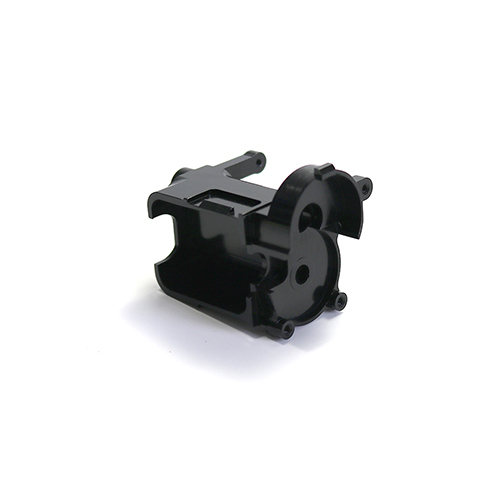April 16, 2025 — The world of manufacturing is undergoing a dramatic transformation, thanks to the rapid advancements in Computer Numerical Control (CNC) technology. With its ability to automate and precisely control machine tools, CNC is reshaping industries from aerospace and automotive to healthcare and consumer goods. As demand for high-quality, custom parts increases, CNC technology is providing a critical solution that delivers efficiency, accuracy, and scalability.
The Rise of CNC: From Manual to Automated Precision
CNC machines have been around for decades, but recent developments in software, automation, and machine learning are pushing the technology to new heights. Initially used for basic machining tasks like drilling, turning, and milling, CNC has evolved to handle much more complex processes, including 3D printing, laser cutting, and even additive manufacturing.
At its core, CNC involves the use of computers to control machine tools, which perform a wide range of operations based on pre-programmed designs. These instructions, typically written in G-code, tell the machine exactly how to move and manipulate the material to create a precise part or product. The result? Increased production speed, reduced human error, and the ability to produce parts with incredibly tight tolerances—features that manual machining simply can’t match.
Impact on Manufacturing Industries
The versatility of CNC technology is evident across multiple industries, each benefiting from its unparalleled precision and adaptability.
● Aerospace and Automotive: Meeting Tight Tolerances
In industries like aerospace and automotive, where safety and performance are critical, CNC is a game-changer. Parts such as engine components, airframes, and turbine blades require the utmost precision, which is where CNC machines excel. These machines can work with a variety of materials—including exotic metals like titanium and Inconel—to produce parts that meet strict regulatory standards.
For example, the aerospace industry relies on multi-axis CNC machines that can machine complex geometries and integrate different materials into a single part. These capabilities have made CNC machining indispensable in producing high-performance, lightweight components for both commercial and military applications.
● Medical Devices: Custom Solutions with Precision
CNC technology is also making waves in the healthcare sector. From surgical tools and implants to custom prosthetics, the medical industry requires parts with extreme accuracy and customization. CNC machines can create these highly specialized parts faster and more accurately than traditional manual methods, leading to better patient outcomes.
The rise of additive manufacturing (3D printing) within CNC services allows for the rapid prototyping and production of custom medical devices, offering personalized solutions that cater to individual patients’ needs. Whether it’s a custom-fit implant or a precision tool, CNC offers unmatched flexibility and quality.
● Consumer Goods: Speed and Customization at Scale
For the consumer goods industry, CNC technology opens up new avenues for mass customization. Companies can produce custom parts or limited-edition products with the same efficiency as mass production. The ability to quickly adjust designs and switch between different materials has made CNC invaluable in creating everything from bespoke furniture to tailored electronics components.
● Small Businesses and Startups: Access to Cutting-Edge Technology
While CNC machines have traditionally been the domain of large manufacturers, advancements in affordable, user-friendly CNC equipment are now making these tools accessible to small businesses and startups. Desktop CNC routers and mills, which were once cost-prohibitive, have become more affordable, allowing entrepreneurs to quickly prototype and produce custom parts without the need for expensive equipment or a large factory space.
These machines are also opening up opportunities for makers and hobbyists, who can now access professional-grade machining technology from the comfort of their own workshops. As a result, CNC technology is democratizing manufacturing, allowing smaller players to compete with larger, more established companies.
● The Future of CNC: Automation, AI, and Smart Machines
The future of CNC technology looks even brighter. Recent developments in artificial intelligence (AI) and machine learning are allowing CNC machines to not only execute complex tasks but also to optimize their operations in real-time. For example, machines can now automatically detect and correct errors during production, making the process even more reliable and efficient.
Industry 4.0—the integration of Internet of Things (IoT) devices, cloud computing, and big data into manufacturing—is also playing a significant role in the evolution of CNC technology. Machines are becoming “smarter,” capable of communicating with each other, sharing data, and adjusting operations on the fly to ensure optimal performance.
The rise of collaborative robots (cobots), which can work alongside human operators, is another trend that is gaining momentum. These robots can assist in handling parts, loading materials, and even performing repetitive tasks, freeing up human workers to focus on more complex aspects of production.
Challenges and Opportunities Ahead
Despite the many advantages, the widespread adoption of CNC technology does come with its challenges. High initial setup costs for industrial CNC machines can be a barrier for small companies or individual entrepreneurs. Moreover, there is a growing need for skilled operators who can program and maintain these advanced machines, requiring investment in workforce training.
However, as CNC technology continues to evolve, there are ample opportunities for innovation and growth. In particular, advancements in automation, 3D printing, and AI could further enhance the capabilities of CNC machines, opening up new possibilities for industries and entrepreneurs alike.
Conclusion
CNC technology has already transformed the manufacturing landscape, and its impact will only grow in the coming years. From aerospace to healthcare to consumer goods, CNC machines are enabling precision, efficiency, and scalability like never before. As automation and AI continue to shape the future of manufacturing, CNC will remain at the heart of this technological revolution.
Whether you’re a large corporation, a small business, or a hobbyist, the rise of CNC technology offers exciting new opportunities for production and innovation. The future of manufacturing is here—and it’s being shaped by the precision of CNC.
Post time: Apr-17-2025




